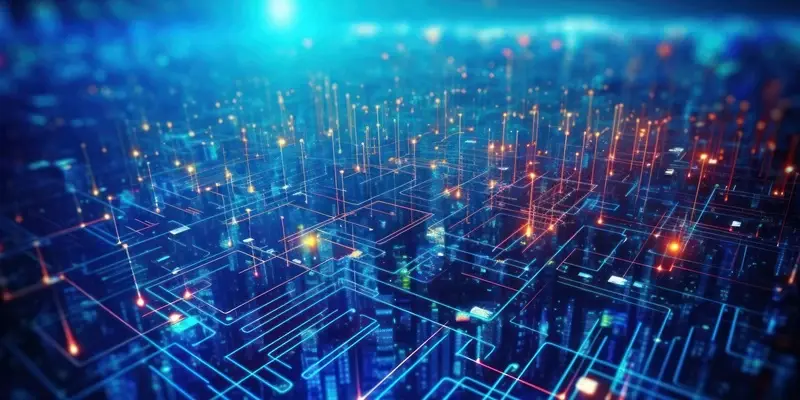In a groundbreaking achievement, Vodafone has connected its 200 millionth IoT device, a healthcare monitor, highlighting the transformational impact of IoT in the healthcare sector. This milestone marks a significant advancement for the telecommunications giant, showcasing its ability to enable remote monitoring of vital health information, thus paving the way for technological innovations that improve patient outcomes and operational efficiencies in healthcare settings.
Expanding IoT Connections
Substantial Growth and Adoption
Over the past several years, Vodafone’s IoT connections have more than doubled, reaching an impressive 200 million devices. This rapid growth underscores the significant adoption of IoT technologies across various sectors, particularly in Europe and Germany, where companies are leveraging digital technologies to boost productivity, enhance supply chains, track assets, and gather invaluable data for insights.
The role of IoT in enhancing supply chain efficiencies and asset tracking cannot be overstated. By implementing IoT devices, businesses can gain real-time visibility into their operations, thereby reducing costs, mitigating risks, and making informed decisions. This integration of IoT technologies is pivotal in transforming traditional business models into more dynamic and data-driven enterprises.
Transformational Applications
Vodafone’s IoT network facilitates diverse and wide-reaching applications, from tracking coal movements in South Africa to monitoring water leaks and forest fires in Europe. These applications showcase the versatility and extensive benefits of IoT technology in addressing critical global issues and improving resource management. Moreover, the sustainability aspect of IoT is underscored by Vodafone’s estimate that over half of its IoT connections help customers reduce emissions. Energy monitoring and traffic regulation in smart buildings and urban areas are prime examples of how IoT solutions contribute to environmental sustainability. By enabling more efficient use of resources, IoT technologies play a crucial role in addressing climate change and promoting sustainable development.
The Role of Leadership
Vodafone Business Insights
Marika Auramo, CEO of Vodafone Business, emphasized the vital role of Vodafone’s global IoT network in supporting businesses and public sector organizations across more than 180 countries. Her insights shed light on the strategic importance of IoT in driving business transformation and operational efficiencies on a global scale.
Vodafone’s global reach and robust IoT infrastructure enable businesses to seamlessly integrate IoT solutions into their operations, regardless of geographic location. This level of connectivity is essential for enterprises looking to expand their digital capabilities and remain competitive in an increasingly interconnected world.
Team Dedication and Innovation
Erik Brenneis, CEO of Vodafone IoT, recognized the achievement as a testament to his team’s dedication and continuous innovation. He described this milestone as the beginning of Vodafone’s hyperscale journey in IoT, highlighting the company’s commitment to advancing IoT technologies and exploring new frontiers in the digital landscape. The dedication of Vodafone’s IoT team in creating innovative solutions is evident in their continuous efforts to push the boundaries of what is possible with IoT technology. Their work not only supports businesses in achieving their digital transformation goals but also sets the stage for future innovations that will shape the IoT ecosystem for years to come.
Broader IoT Adoption Trends
New Opportunities and Markets
The broader trend of increasing IoT adoption is opening up new opportunities and markets as physical assets begin to communicate in real-time.This emerging landscape, often referred to as the Economy of Things, represents a shift towards an interconnected ecosystem where devices, systems, and services seamlessly interact to deliver enhanced value.
Real-time communication between physical assets facilitates the creation of smarter, more responsive systems. For instance, in industrial settings, IoT-enabled machinery can self-diagnose issues and optimize performance, reducing downtime and improving overall efficiency. This level of sophistication is transforming industries and creating new business models centered around digital innovation.
Paving the Way for Future Innovations
As IoT adoption continues to rise, the potential for innovation expands exponentially. The ability to collect and analyze vast amounts of data from connected devices opens the door to new insights and applications that were previously unimaginable. This data-driven approach is instrumental in driving advancements in various sectors, from healthcare and manufacturing to transportation and agriculture. The future of IoT holds promise for even greater advancements as technology evolves and becomes more integrated into our daily lives. The continuous improvement and expansion of IoT networks will undoubtedly lead to new breakthroughs that enhance operational efficiencies, improve quality of life, and address global challenges in innovative ways.

